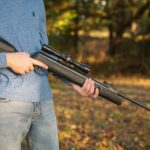Table of Contents
Why You Need A Good Pair Of Fishing Pliers
Every angler should carry a quality set of fishing pliers. While regular pliers are OK, fishing pliers with strong cutters are more appropriate for fishing applications. Here are the 3 key reasons why you need a good pair of fishing pliers.
1. Your Health & Safety
For years I watched my dad use his teeth to cut mono fishing lines. Bad idea. With pliers by his side, he might have saved a few broken teeth.
Removing hooks from the mouths of fish with sharp teeth is hazardous. With fish like barracuda, pike, and sharks, it’s downright dangerous. You risk severe lacerations or worse – the loss of a finger or hand when you attempt hook removal without pliers.
Opening split rings and replacing treble hooks requires force. Without pliers, you risk embedding hooks in your hand.
2. Fish Health
For catch and release, removing embedded hooks from deep in the mouth of a fish is nigh on impossible without a good set of fishing pliers.
Without pliers for clean, efficient hook removal, you risk doing great harm to a fish, reducing its chances of survival, or killing it outright.
3. Catching More Fish
If your line’s not in the water, you’re not catching fish. Fishing pliers provide excellent rigging efficiency as well as the ability to fine-tune lures and rigs quickly.
With good fishing pliers, you can tie complex, high-performance rigs much faster, giving you more time in the water – the key to every successful fishing trip.
Fishing Pliers Buying Guide
Fortunately for us, there are a lot of great products out there, and it’s hard to go wrong with fishing pliers. Here are some key purchasing criteria to keep in mind.
Cost
You can get serviceable pliers for under 10 bucks. For quality, multifunction pliers there’s a lot to choose from around $20 to $40.
Between $40 and $100 expect multifunctional, lightweight designs with superior anti-corrosion credentials. Above the $100 mark, high-end ergonomics and construction materials are a must. Pliers at this price point have to feel great and last for years.
Functionality
If you fish a lot of lures or tie more complex rigs regularly, split ring nose and crimping functions are ideal. They must also include blades appropriate for cutting braided lines, monofilament fishing lines, fluoro leader, and steel leader.
But for many anglers, an ergonomic grip, with secure jaws and side cutting is enough to cover their needs. For example, a crimping tool is great for closing splitshot weights, but easily achieved with any nose shap.
Saltwater Pliers vs Freshwater Fishing Pliers
Most pliers are constructed from anti-corrosion materials. By and large, the higher the price point, the more corrosion resistant. At the highest price point, expect no rust at all.
Once you’re over $100, expect them to be corrosion-proof. If you want pliers that endure, only buy saltwater fishing pliers. For me pliers that are suitable only for freshwater fishing are unnecessary.
Materials
Most fishing pliers are made from a variety of lightweight alloys for corrosion protection and easy handling. Many brands will have different materials, such as stainless steel (often replaceabl) for the jaws for better grip and durability.
Stainless steel pliers are very durable if at times a little heavy. Materials such as aircraft-grade alloys and tungsten are generally reserved for more expensive brands and models.
Lightweight aluminum pliers are inexpensive and durable, and always a good bet.
Cutters
Tungsten carbide blades are pretty well the standard these days for blades. They’re not all constructed equally, however, so stay-sharp durability can be a bit of a lottery. To avoid replacing pliers regularly, look for reversible and replaceable blades.
Nose Length
If you’re removing hooks from big fish with big mouths and teeth, look for long nose pliers with a total length of up to 11 inches. 7 inches is a standard overall length, and you’ll be choosing between standard and needle nose. 7 inches is the Goldilocks length and suitable for the vast majority of fishing applications.
I like the maneuverability and dexterity afforded by needle nose. However, there’s a lot to be said for the purchase afforded by standard nose widths. This will often come down to feel – therefore a personal choice.
Grips
Ergonomic grips can make a set of pliers. But we all have different ideas as to what constitutes grip comfort.. Comfort is important, but I also look for non-slip grips. Some anti-corrosion coatings and anodizing can be slippery – I tend to avoid these. A solid grip is vital, as is a safe grip. An aluminum handle will often have a well-shaped ergonomic design, great for gripping, but can be cold to the touch in winter.
Be aware that plastic and rubber overlay grips will allow salt and sand to get between the grip and the handles. This can cause corrosion if not cleaned properly. Spring-loaded handles are great, but the spring can invite weakness and corrosion.
Lanyard & Sheath
In nearly all cases, the lanyard, and sheath will die long before your pliers do. The key thing to look for is the strength of the link between the chord and pliers, and the sheath and pliers. These are often weak points. I always change out the factory links with my own strong split rings or carabiner for peace of mind.
Final Words On The Best Fishing Pliers
Every angler should carry pliers. Fortunately, there are countless worthy options in every price bracket. My winner today, the Piscifun Aluminum Fishing Pliers, has very strong competition. But for price-relative functionality, they were hard to beat. My runners-up are the KastKing Intimidator Fishing Pliers, and the Gerber Magnipliers – awesome options from contrasting price points.








































